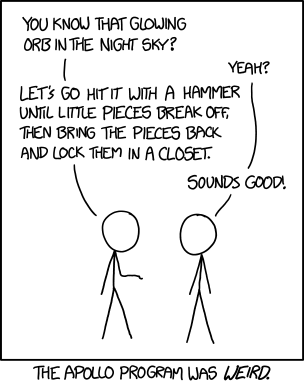It’s forgotten and diffused its mission:
…as the impact of communicable diseases has lessened, public-health medicine—which concerns itself with community-wide solutions to health problems—began to look more intensely at treating and preventing conditions that don’t originate with germs. The focus of researchers and doctors turned especially to conditions thought to underlie cardiovascular disease. But unlike battles against germs, isolating the key cause of such problems has proved elusive, because multiple factors—from genetics to diet to personal habits, like smoking—are all potentially contribute.
Advocates like Frieden have plunged ahead anyway, sometimes proposing simplistic solutions to complex problems, often without much data to back up their claims. As New York City’s health commissioner, Frieden engineered a law requiring food chains to post calorie counts on menus, though there was no evidence that the availability of such information has any effect on eating habits. Frieden also led a campaign to cut salt consumption despite studies that had shown, in fact, that some individuals fared poorly on a salt-restricted diet. Frieden’s campaign led one world-renown hypertension expert to proclaim that New York was attempting to engineer a giant uncontrolled experiment. As time passed, Frieden’s practice of recommending sometimes outrageous solutions to health problems based on few facts grew more disconcerting. In 2007, he even proposed a campaign to persuade uncircumcised adult men in New York to get circumcised to reduce their risk to HIV; a study in Africa had concluded that the practice helped lower infections there. But Frieden’s proposal was widely derided and quickly dismissed because of the vast differences between the two populations and the preliminary nature of the research.
Read the whole thing. This is a microcosm of the more general problem of government getting involved with things that it both has no business doing, and at which it is monumentally incompetent. A small step to fix it would be to can Frieden, and explain why, and refocus the CDC on germs, but that’s far beyond this president’s ideology or ken.
[Update a while later]
Will ebola be good for the CDC?
Public health experts were, in a way, too successful; they beat back our infectious disease load to the point where most of us have never had anything more serious than Human papillomavirus or a bad case of the flu. This left them without that much to do. So they reinvented themselves as the overseers of everything that might make us unhealthy, from French Fries to work stress.
As with the steel mills, these problems are not necessarily amenable to the organizational tools used to tackle tuberculosis. The more the public and private health system are focused on these problems, the less optimized they will be for fighting the war against infectious disease. It is less surprising to find that they didn’t know how to respond to a novel infectious disease than it would have been to discover that they botched a new campaign against texting and driving.
Don’t get me wrong: Fighting infection is still one of the things that the public health infrastructure does, and though I hope it doesn’t come to that, I expect that our system will do a much better job next time. But the CDC did not botch the job because there’s something wrong with Barack Obama, or government, or the state of Texas, or private hospitals. They dropped the ball because the public health system no longer needs to work so many miracles, and consequently hasn’t had much practice. We shouldn’t have let public health give us such an inflated belief in the power of government. But we also shouldn’t forget that with the right task and the right tools, government is still capable of doing some wondrous things.
Only if it is focused on what it does well, and the right incentives are in place. That is not the case for much of the current federal government.
